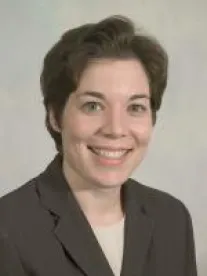In Christopher v. SmithKline Beecham Corp., decided June 18, 2012, the U.S. Supreme Court held that pharmaceutical sales representatives (PSRs) who promote sales of prescription drugs and obtain nonbinding commitments from doctors to prescribe those drugs are exempt under the "outside sales" exemption of the Fair Labor Standards Act (FLSA). SmithKline Beecham Corp. is significant not only because it recognized that the term "sale" is broad enough to accommodate industry-specific variations in methods of selling commodities, but also because the Court declined to give controlling deference to the Department of Labor's (DOL) interpretation of applicable regulations.
Background
The prescription drug industry is subject to federal regulation that requires that prescription drugs may be dispensed only pursuant to a physician's prescription. For this reason, pharmaceutical companies focus their marketing and promoting efforts on physicians. The plaintiffs in SmithKline Beecham Corp. were PSRs whose primary objective was to obtain a nonbinding commitment from physicians to prescribe their employer's products in appropriate cases. The PSRs spent approximately 40 hours in the field each week calling on physicians, plus additional time attending events and performing other miscellaneous tasks, and were paid both a base salary and incentive pay based on the performance of their assigned portfolio of drugs in their assigned territory.
The Litigation
Two PSRs employed by SmithKline Beecham Corp. alleged that SmithKline Beecham violated the FLSA by failing to compensate them for overtime. SmithKline Beecham argued that the representatives were exempt from the overtime compensation requirement of the FLSA based on the "outside sales" exemption. To qualify for the FLSA's outside sales exemption, an employee's primary duty must either be making "sales" (defined to include any sale, exchange, contract to sell, consignment for sales, shipment for sale, or other disposition) or obtaining orders or contracts for services. The employee must also be customarily and regularly engaged away from the employer's place of business.
The district court agreed with SmithKline Beecham Corp. that the PSRs were exempt "outside salesmen" and granted summary judgment for the company. The Ninth Circuit U.S. Court of Appeals affirmed — notwithstanding that the DOL had filed an amicus brief asserting that the salespeople were non-exempt. The Ninth Circuit rejected the DOL's interpretation of the applicable regulation and found that the PSRs were exempt. The Ninth Circuit's decision conflicted with the Second Circuit's 2010 ruling in In re Novartis Wage and Hour Litigation that PSRs were non-exempt (in which the DOL also filed an amicus brief), and the Supreme Court granted certiorari.
The Supreme Court affirmed the Ninth Circuit, holding that PSRs satisfied the exemption in that PSRs bore all of the "external indicia" of outside salesmen: they were hired based on their sales experience, trained to close each sales call by obtaining the maximum commitment possible in the industry to ensure the eventual disposition of the products, worked away from the office, and were rewarded for their success with incentive compensation. The Court declined to afford deference to the DOL's new position asserted in its amicus brief before the Court that a "sale" must include a transfer of title to the property at issue, favoring instead a broader interpretation of the term "sale" to include arrangements that are "tantamount" to a sale in a given industry. Further weighing against deference to the DOL's interpretation, according to the Court, was that the DOL's inaction prior to 2009 on the question of the exempt status of approximately 90,000 PSRs, whose work is well-known and has not materially changed for decades, essentially constituted "acquiescence" to the exempt classification.
Impact of the Decision
The SmithKline Beecham Corp. decision embraces a broad interpretation of what it means to "sell" in a given industry. It also is significant in that it rejects an attempt by the DOL to enact a last-minute interpretation of its own regulations that contradicts longstanding industry practice and understanding of the law. Nevertheless, because the applicability of the outside sales exemption requires a case-by-case analysis, it is important for employers to confirm that their existing classifications of outside salespeople comport with this decision.


 />i
/>i

